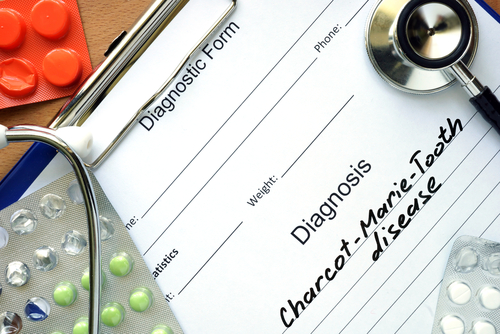#AAN2018 – Autonomic Nerve Damage Is Widespread and Greatly Affects CMT Patients, Study Shows

Damage in the nerves that control involuntary body functions — known as autonomic nerve damage — is highly prevalent and has a significant impact on Charcot-Marie-Tooth disease (CMT) patients, a new study shows.
The research, “Dysautonomia in Charcot-Marie-Tooth Disease and Correlations with Patient-Reported Disability (P2.112),” will be presented as a poster at the 2018 American Academy of Neurology (AAN) Annual Meeting, which will be held between April 21-27, in Los Angeles.
The presentation will take place on Monday, April 23, at 5:30 PM PST, as part of the P2 – Poster Session II “Autonomic Disorders: Autonomic Neuropathies.”
Autonomic neuropathy results from damage in the nerves that control involuntary bodily functions and may affect heart rhythm, breathing, and small fiber nerves. Patients with peripheral neuropathy (damage in peripheral nerves), such as those with CMT, may also have autonomic neuropathy. However, the prevalence of autonomic neuropathy in these patients remains to be determined.
The study evaluated both the prevalence of autonomic neuropathy in CMT patients and its effect on patient-reported disability.
The researchers conducted a Survey of Autonomic Symptoms on patients aged 18 and older, who were recruited online from three patient advocacy groups: Charcot-Marie-Tooth Association, Hereditary Neuropathy Foundation, and Rare Diseases Clinical Research Network.
The investigators assessed the impact of autonomic neuropathy on CMT by evaluating scores of the World Health Organization Disability Assessment Schedule 2.0 (WHODAS 2.0; range: 1–5), in which higher scores indicate worse function.
Of a total 705 surveys received, results were analyzed from the 669 responders (431 women) who delivered complete data. Genetic testing had been conducted in 433 patients (64.7%).
The data revealed that the most prevalent disease type was 1A (228 patients, 52.7%) and that the most common age range was 60+ years, with 286 patients (42.8%).
Autonomic neuropathy, as assessed by Survey of Autonomic Symptoms (SAS) scores, was found in 441 CMT adult patients (65.8%). CMT patients with autonomic neuropathy reported higher use of sleep apnea therapy machines CPAP/BiPAP and cardiac pacemaker/defibrillator. They also reported burning dysesthesias (pain).
Also, the results revealed that autonomic neuropathy had a significant impact on CMT, as these patients had higher WHODAS scores than those without damaged autonomic nerves.
Overall, the study shows that “there is a high prevalence and impact of autonomic neuropathy in patients with CMT,” the researchers wrote.
“We recommend prospective validation of our results in a CMT population, as this would change disease surveillance and the clinical care of patients with CMT,” they added.






